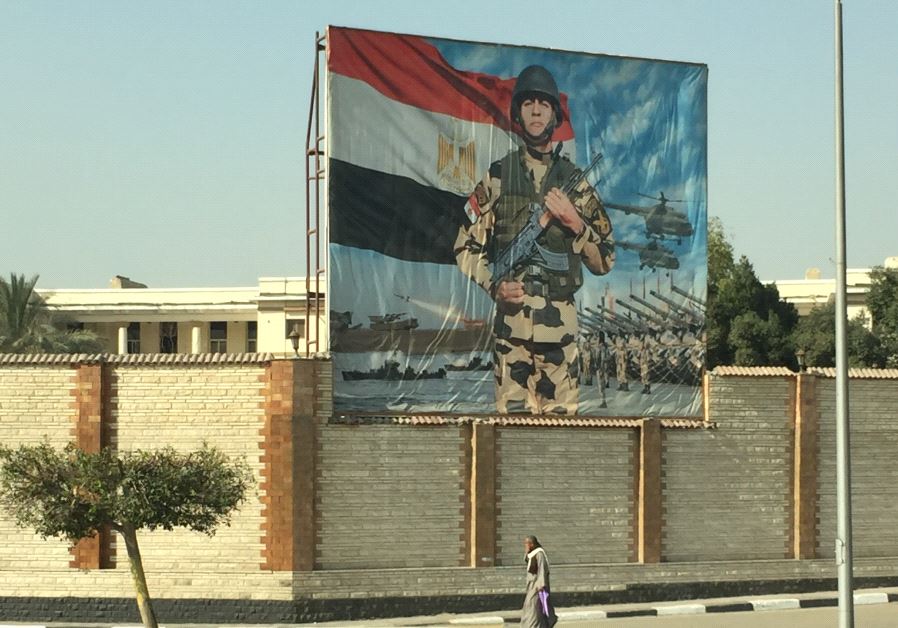Eliminating terror groups in Sinai a key priority for Egypt
Egypt feels the confrontation in Sinai is symbolic of a larger conflict with regional and global ramifications.
 A poster celebrates the Egyptian army in Cairo.(photo credit: SETH J. FRANTZMAN)Updated:
A poster celebrates the Egyptian army in Cairo.(photo credit: SETH J. FRANTZMAN)Updated: